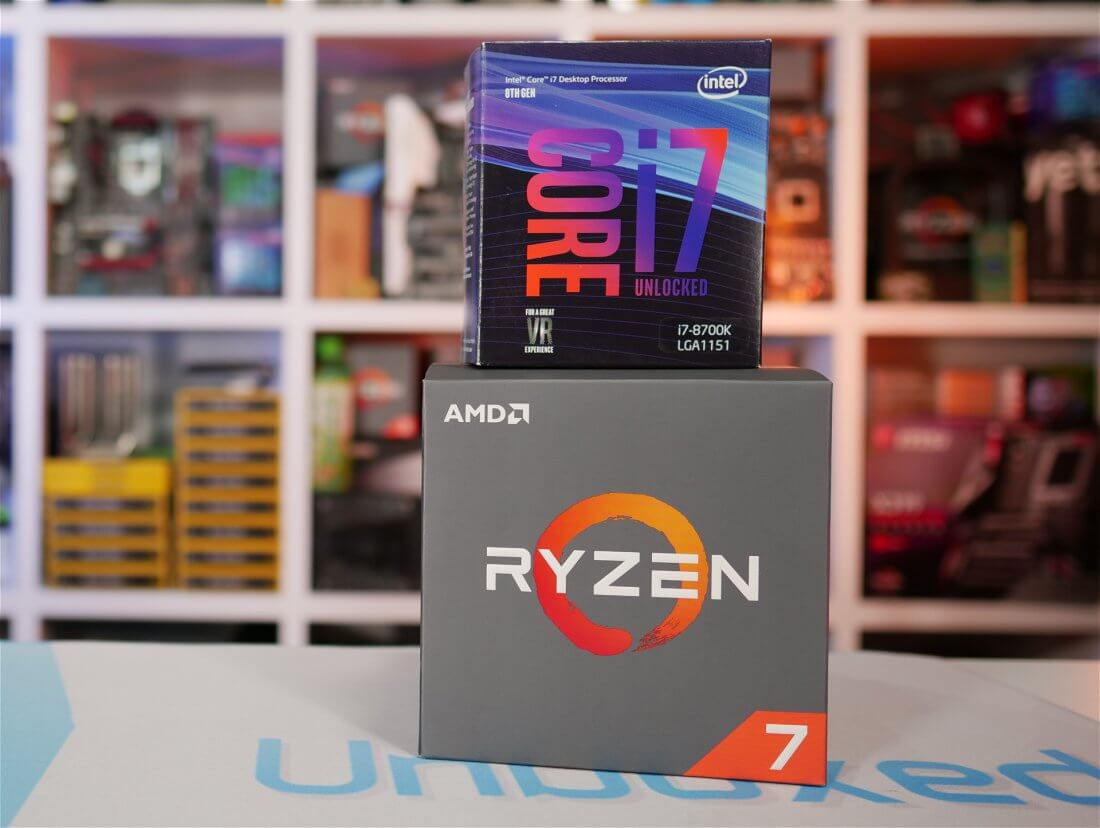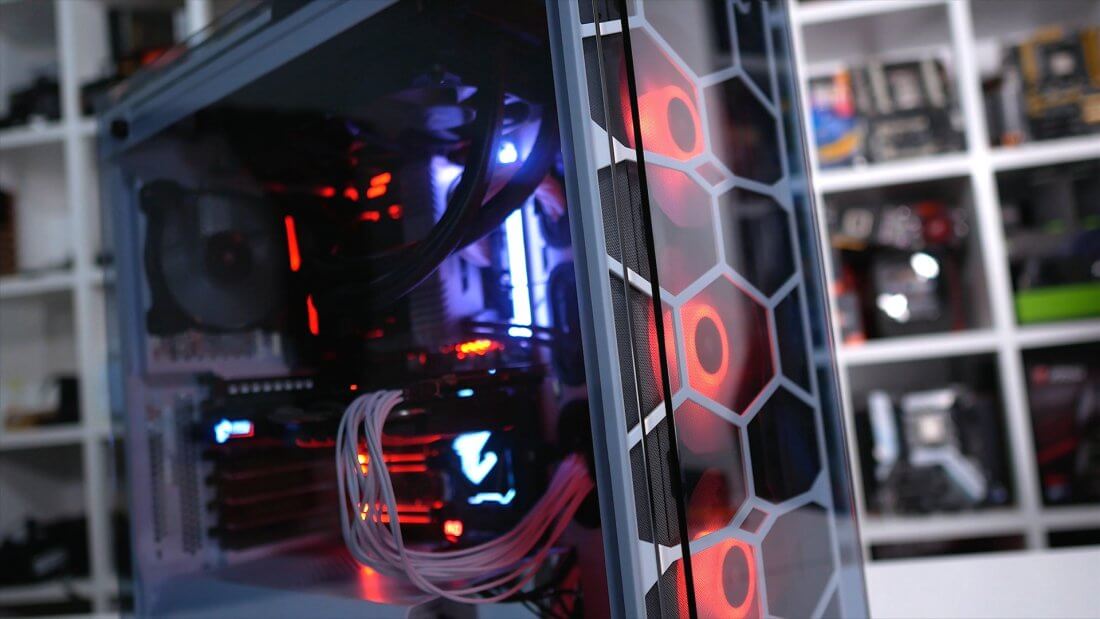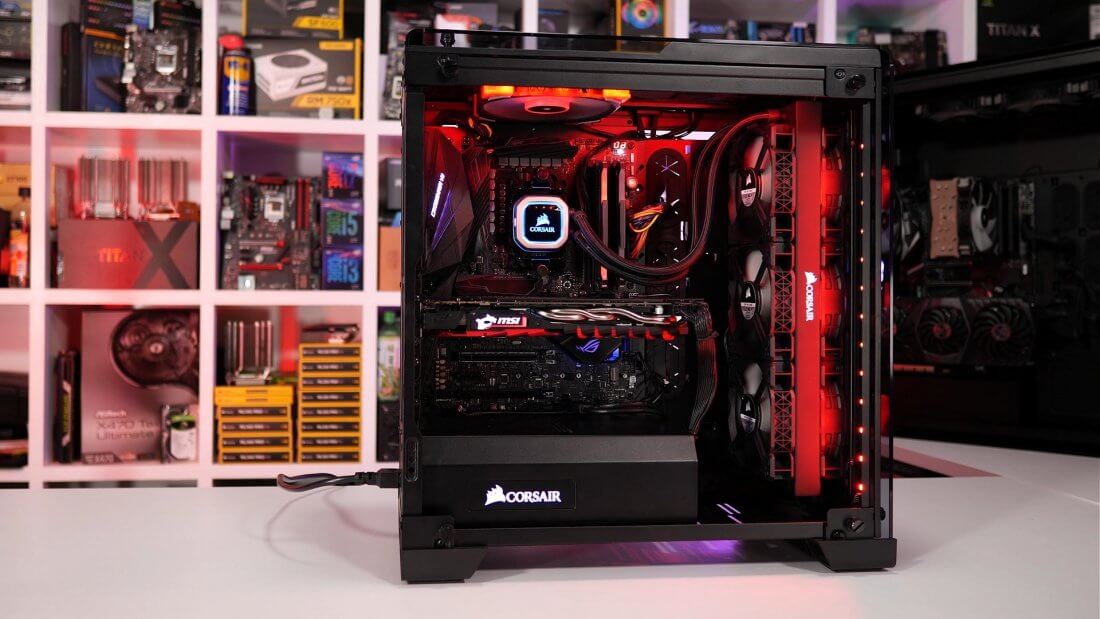Today we're finally bringing you the epic gaming battle between the Ryzen 7 2700X and Core i7-8700K that so many have been requesting. From AMD, the Ryzen 2700X packs 8 cores and 16 threads clocked between 3.7 and 4.3 GHz, depending on the workload. From Intel, the Core i7-8700K offers two less cores for a 6 core/12 thread configuration, but what this chip lacks in cores it makes up for in clock speed, operating at between 3.7 GHz and 4.7 GHz.
Both CPUs are unlocked, meaning they can be overclocked and we suspect many of you interested in either of these will be overclocking, so that's what we've done as well. However, it's worth noting that the 2700X is basically maxed out and as a result overclocking all cores to 4.2 GHz only boosted gaming performance by up to 5%, so it's really not worth it. With that said, in our tests we've squeezed maximum performance from both CPUs, so it's all fair game.
For testing the Core i7-8700K, we put together a rig featuring the Gigabyte Z370 Aorus Gaming 7 with 16GB of DDR4-3400 Samsung B-die memory using The Stilts timings. The CPU has been overclocked to 5 GHz and cooling it at that frequency is the Corsair Hydro Series H100i v2 inside the Corsair Crystal 570X.
Then for the Ryzen 7 2700X rig we have the Asus ROG Crosshair VII Hero with 16GB of DDR4-3400 Samsung B-die memory, again using The Stilts timings. The 2700X has been overclocked to 4.2 GHz and this time we're using the Corsair Hydro H150i Pro inside the Corsair Crystal 570X.
In total we have 35 games on the menu and each game has been tested at 720p, 1080p and 1440p using the GeForce GTX 1080 Ti.
Gaming Benchmarks
ARMA 3, Ashes of the Singularity, Assassin's Creed, Rainbow Six Siege, Battlefield 1
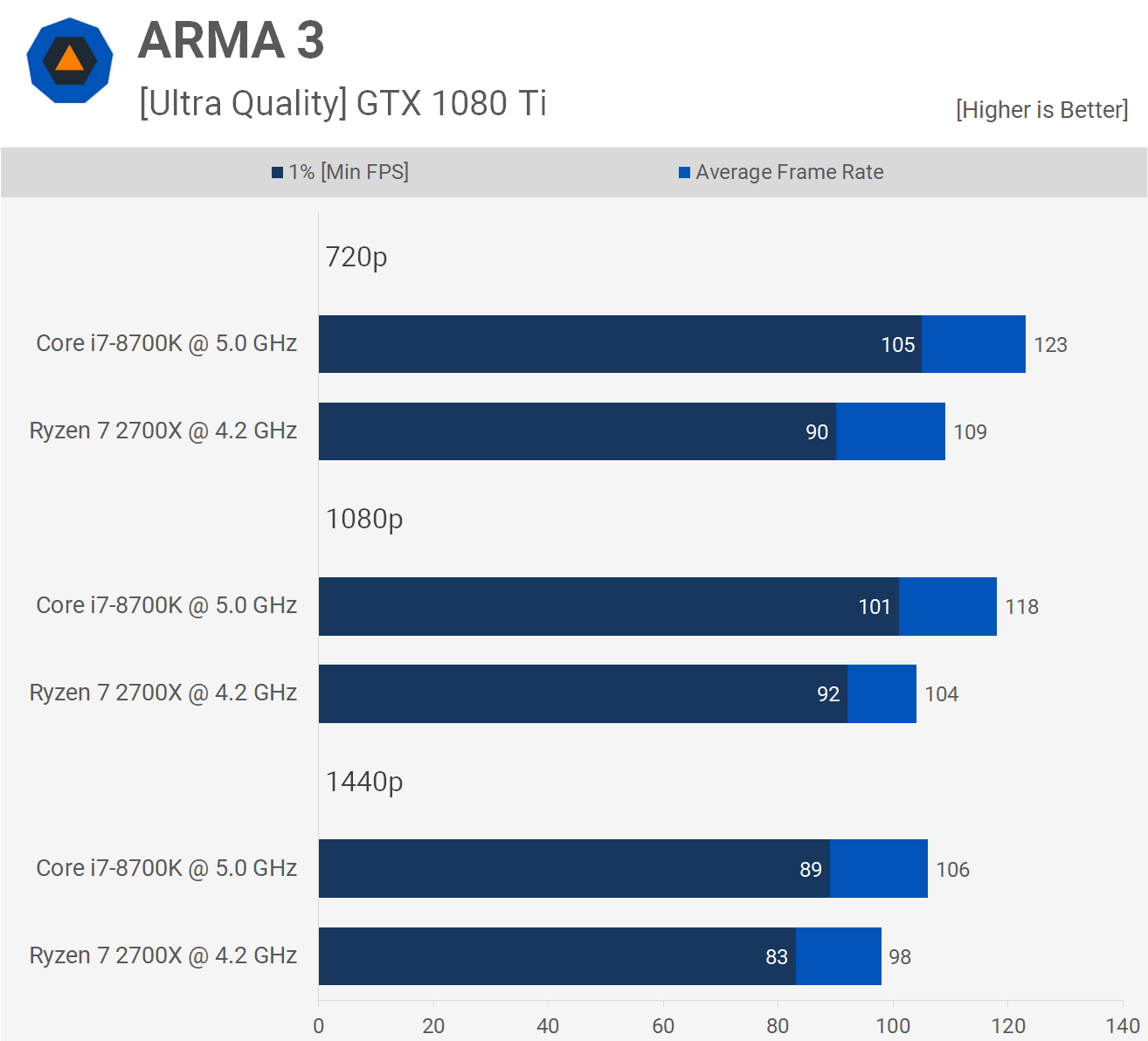
First up we have ARMA 3 and here the 8700K was 13% faster at 720p and 1080p when comparing the average frame rate. Once we reached 1440p though the GTX 1080 Ti starts to become the performance limiting component and as a result the margin shrinks to just 8% in favor of the 8700K.
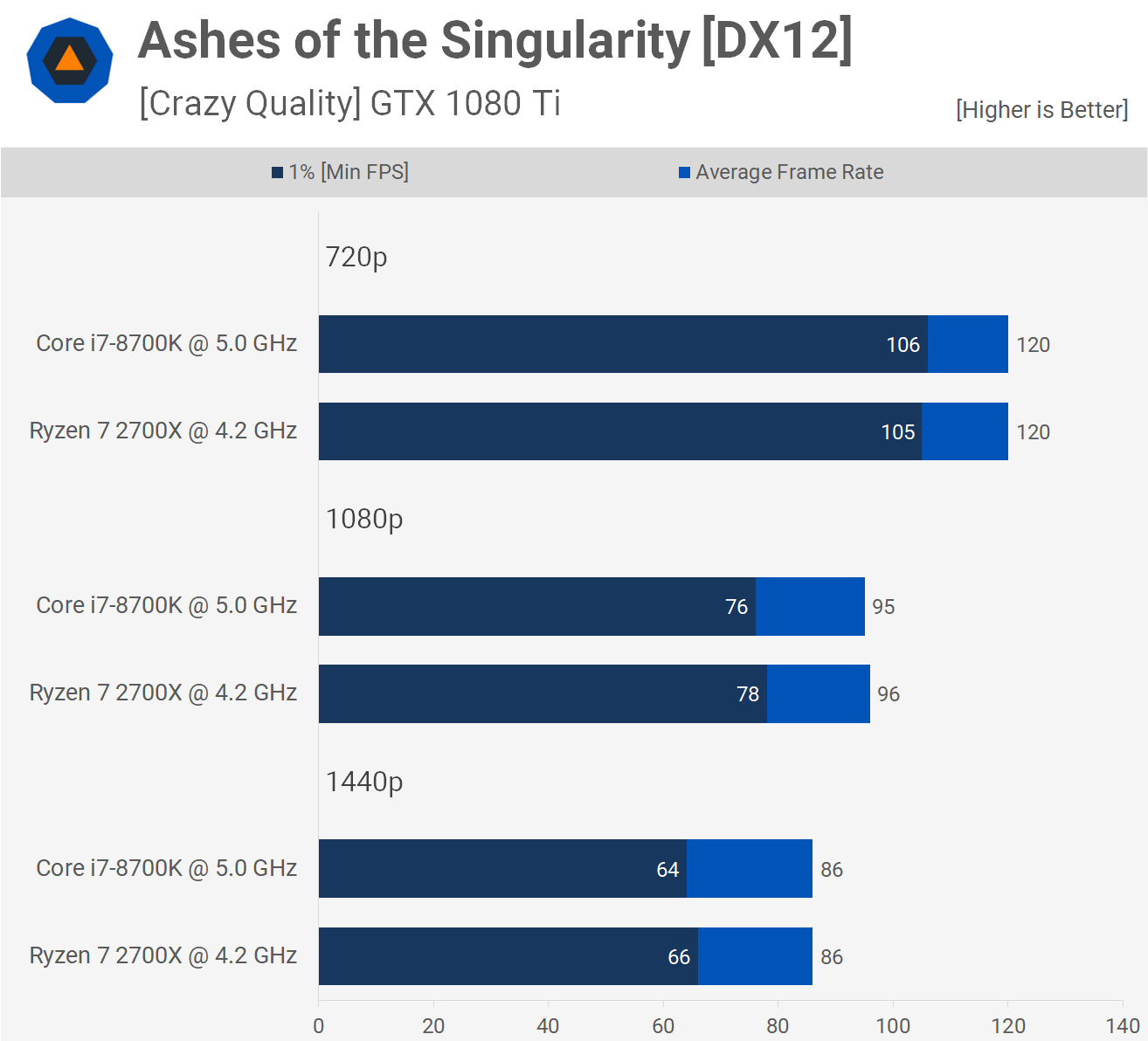
For benchmarking Ashes of the Singularity the Crazy quality settings were used and this imposes a serious GPU bottleneck, even at 720p. That being the case both CPUs were able to maximise the GTX 1080 Ti at all three tested resolutions.

Ridding around the town of Alexandria in Assassin's Creed Origins saw the Core i7-8700K deliver up to 7% more performance at 720p but oddly 10% more at 1080p and then 11% at 1440p. It's extremely rare to see the performance margin grow as we increase the resolution, but then ACO is a strange animal at times.

Next up we have Rainbow Six Siege and here the 8700K was 12% faster at 720p for the 1% low result and 9% faster for the average frame rate. The margin erodes away almost considerably at 1080p, here the Core i7 processor was just 5% faster. Then at 1440p we see identical performance with both CPUs enabling extreme performance.
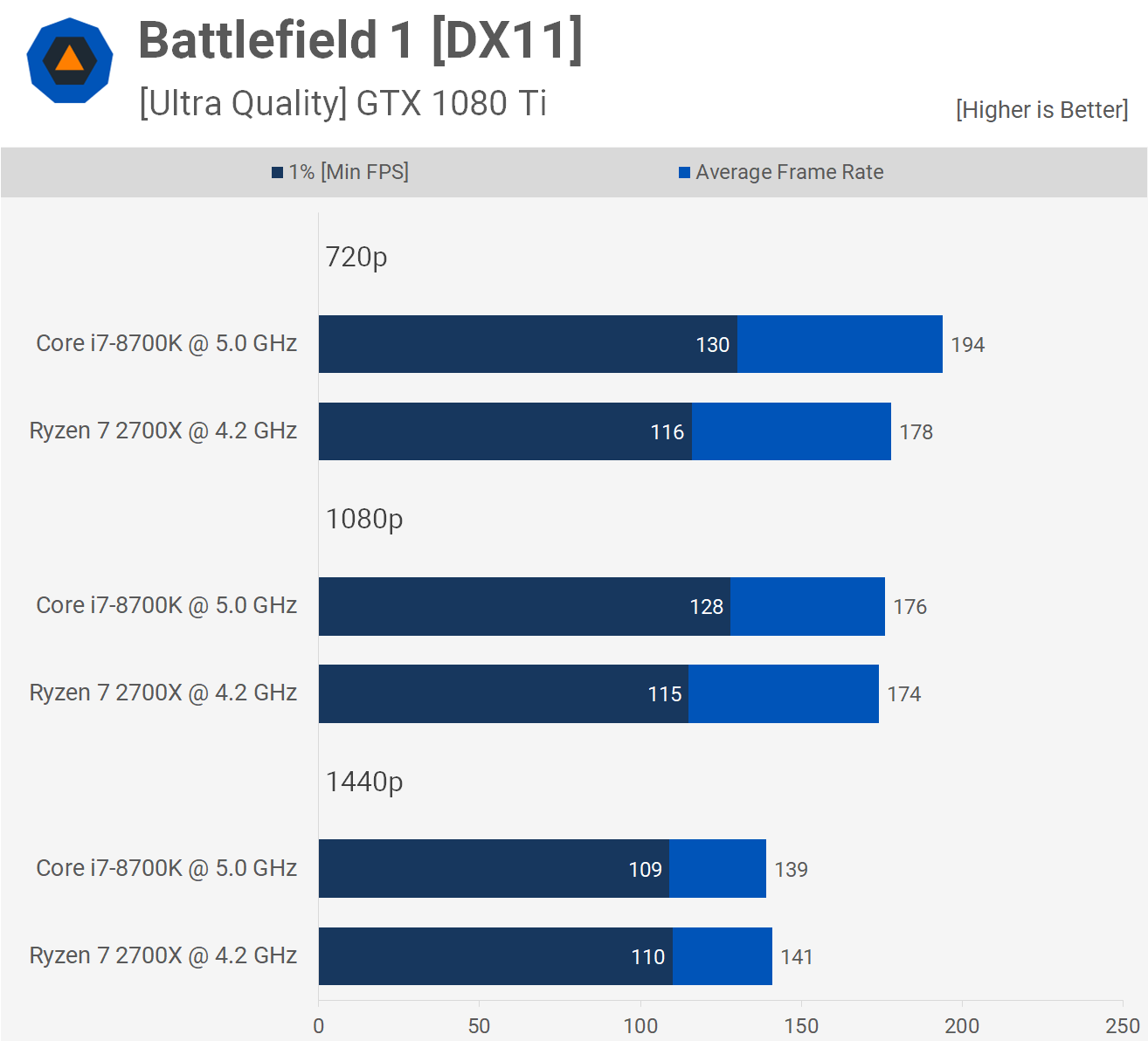
Testing with Battlefield 1 we find a fairly even fight, though at times it's advantage Intel. At the low 720p resolution the 8700K was up to 12% faster as the 2700X seems to cap out at 116 fps for the 1% low result.
Moving to 1080p we find similar margins for the frame time performance, here Intel was 11% faster. That said it was interesting to see the 2700X close up on the 8700K for the average frame rate, typically its the average frame rate where Intel pulls away.
Then finally at 1440p we're primarily GPU bound, even with the GTX 1080 Ti and here the 8700K and 2700X deliver an identical experience.

